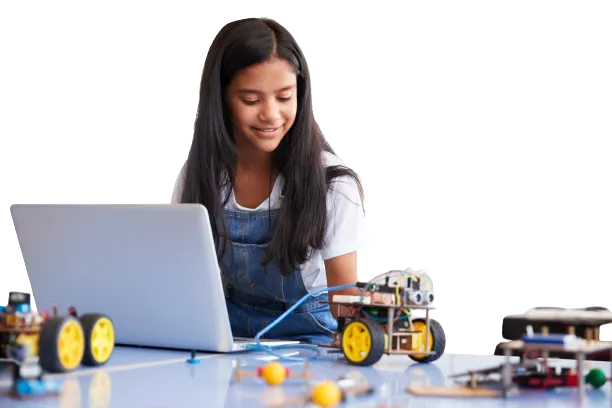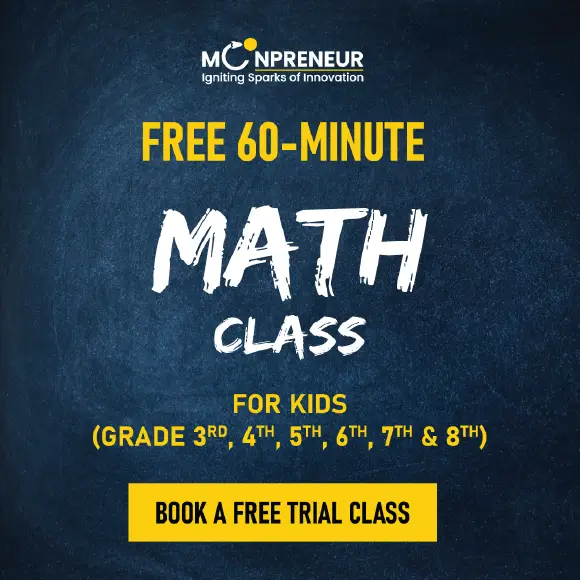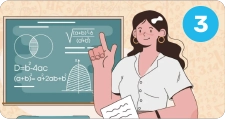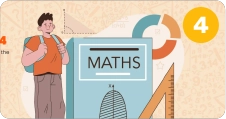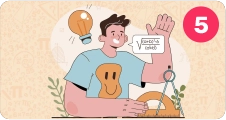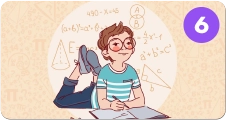Math can be challenging for many children, but building a strong foundation in math vocabulary can make a big difference. By learning the key terms and concepts, they can better understand math concepts, improve their skills, and easily solve mathematical problems.
In this blog, we’ll explore some essential math vocabulary for kids and provide tips to help them master these important words.
Counting and Numbers
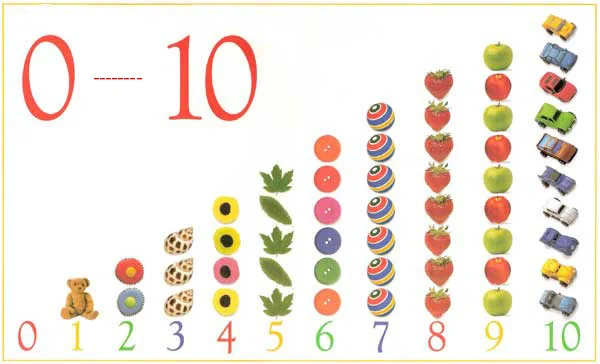
The most fundamental math vocabulary for kids revolves around counting and numbers. Some essential terms include:
Number: A numerical value that represents a quantity.
Digit: The single symbols from 0 to 9 that are used to represent numbers in maths.
Counting: The process of determining the total number of items in a set.
Sequence: An ordered list of numbers, such as 1, 2, 3, 4, 5.
Odd and Even: Numbers that are either divisible by 2 (even) or not divisible by 2 (odd).
Greater Than and Less Than: Comparing the size or value of two numbers.
Recommended Reading: What are the Number Properties?
Basic Operations
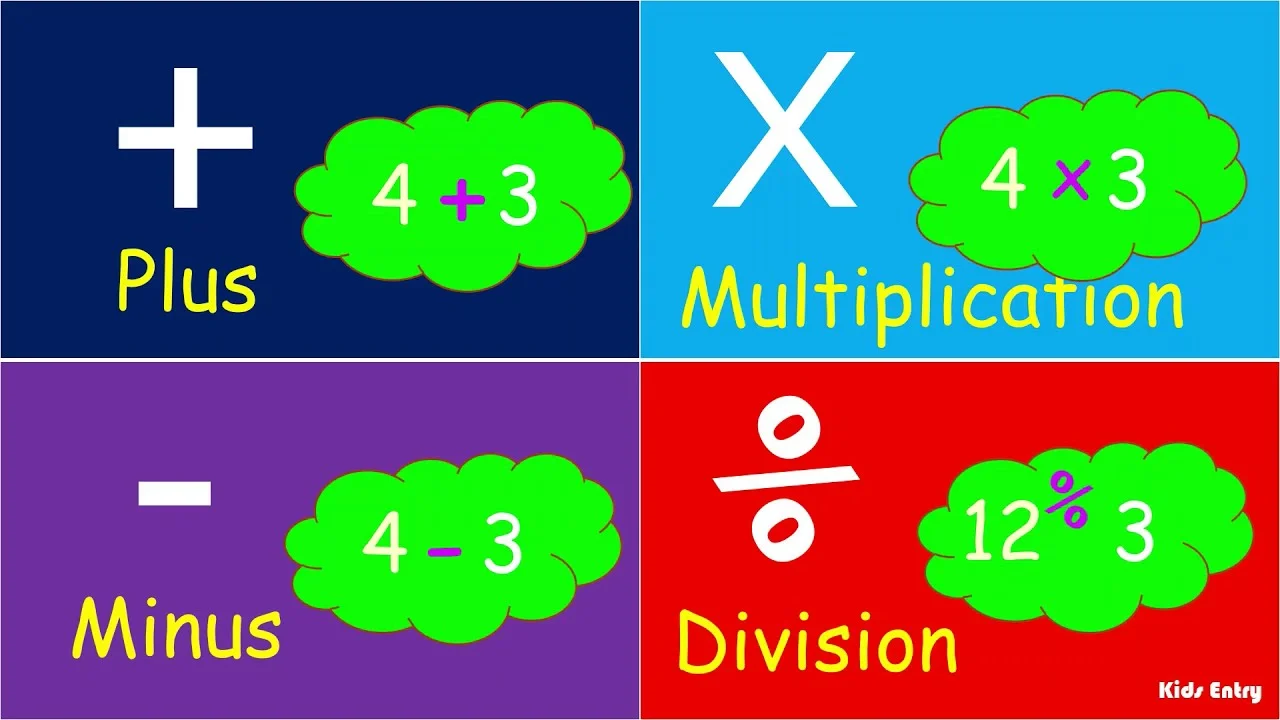
Once kids have a grip on counting and numbers, they can start learning about the basic math operations:
Addition: Combining two or more numbers to find a total.
Subtraction: Taking one number away from another to find the difference.
Multiplication: Repeated addition of the same number.
Division: Splitting a number into equal parts.
Getting these operations at your fingertips is crucial for solving basic and complex math problems.
Shapes and Geometry
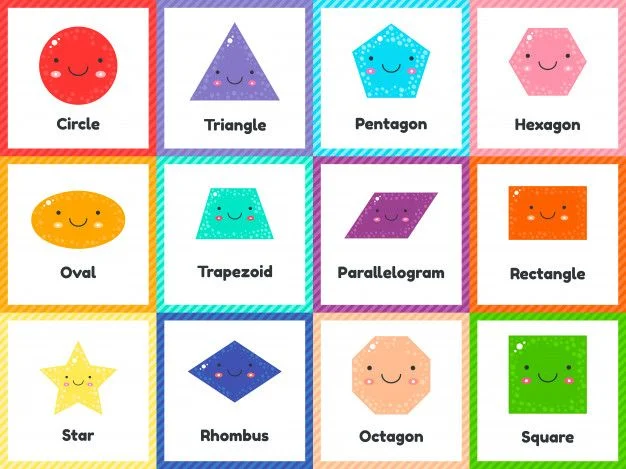
Geometry is another important area of math vocabulary for kids. Some key terms include:
Shape: The outline or boundary of any object in any form such as a circle, square, cube, etc.
Vertex: A point where two or more curves, lines, or edges meet. In geometry, vertices are the corners or points of a polygon, polyhedron, or other geometric figure.
Edge: An edge is a line segment joining two vertices. In graph theory, edges are used to connect vertices in a graph, representing relationships or connections between the objects represented by the vertices.
Face: A face typically refers to a flat surface that forms part of the boundary of a solid object.
Angle: An angle is a figure formed by two rays, called the sides of the angle, sharing a common endpoint, called the vertex of the angle. Angles are usually measured in degrees or radians
Understanding these geometric concepts can help kids visualize and solve math problems.
Recommended Reading: Top Math Board Games For Kids to Boost Math Skills
Measurement
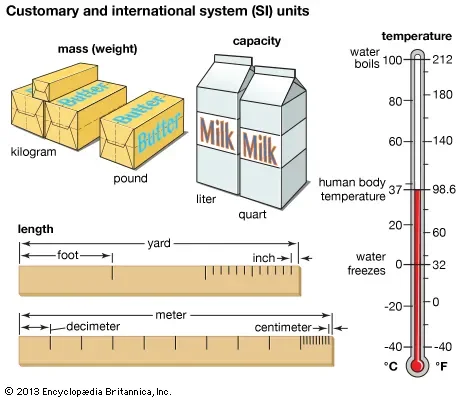
Measurement is another essential math skill that requires specific vocabulary, such as:
Length: The distance between two points, measured in units like inches, centimeters, or meters.
Weight: The measure of how heavy an object is, measured in units like pounds or kilograms.
Volume: The amount of space an object occupies, measured in units like cubic inches or liters.
Time: The duration of an event, measured in units like seconds, minutes, or hours.
Learning measurement vocabulary can help kids apply math concepts to real-world situations.
Tips for Teaching Math Vocabulary
Introducing and teaching your kids math vocabulary is essential for students to develop a strong foundation in mathematics. By employing various strategies, educators can make the learning process both effective and enjoyable. Here are some tips for teaching math vocabulary:
1. Use visuals:
Visualizations like diagrams, pictures, and hands-on activities provide tangible examples, helping kids grasp abstract math terms by seeing them live in action. These visuals make concepts more concrete and accessible, inculcating deeper understanding and retention of mathematical vocabulary.
2. Relate to everyday life:
Making connections between math vocabulary and real-life situations helps kids see the relevance of what they’re learning. By tying terms to familiar objects and experiences, educators create meaningful contexts that make math concepts easier to understand and apply in daily life.
3. Encourage Engaging discussion:
Engaging kids in conversations where they use math vocabulary promotes active learning and reinforces understanding. Encouraging kids to explain their reasoning and solutions using math terms helps in improving communication skills and deepens comprehension of mathematical concepts through peer interaction and collaboration.
4. Repetition and practice:
Consistent review and practice are key to solidifying math vocabulary. Through activities such as games, worksheets, and interactive exercises, students reinforce their understanding of terms, enhancing recall and fluency in using mathematical language in different contexts.
5. Making it fun:
Integrating math vocabulary into enjoyable learning experiences captures students’ interest and enthusiasm. By incorporating elements of play, storytelling, and multimedia resources like videos, educators create engaging environments that motivate students to explore and master math terms while having fun along the way.
Conclusion
By building a strong foundation in math vocabulary, kids can develop a deeper understanding of mathematical concepts and gain the confidence to tackle more advanced math challenges.
Moonpreneur understands the needs and demands this rapidly changing technological world is bringing with it for our kids. Our expert-designed Advanced Math course for grades 3rd, 4th, 5th, and 6th will help your child develop math skills with hands-on lessons, excite them to learn, and help them build real-life applications.
Register for a free 60-minute Advanced Math Workshop today!

